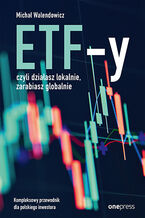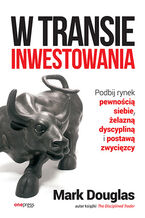Innovation and Market Value. The Case of Tourism Enterprises Dawid Szutowski
- Autor:
- Dawid Szutowski
- Wydawnictwo:
- SELF-PUBLISHER
- Ocena:
- Stron:
- 267
- Dostępny format:
-
PDF
Opis
książki
:
Innovation and Market Value. The Case of Tourism Enterprises
Innovation is of crucial importance for tourism companies, which cover accommodation for visitors, food and beverage serving activities, passenger transportation, travel agencies and other reservation activities, cultural activities, sports and recreational activities and retail trade of country-specific tourism characteristic goods [UNWTO 2010]. It provides them with competitive advantage and hence the firms with market power gain more from innovation [Tirole 1995]. A firm’s innovation interacts with the environment. It delivers diverse benefits to the consumers in the form of new products and lower prices which in turn impact positively on the company [Shiller 2006]. In the context of tourism the ongoing scientific discussion on innovation seems not to have achieved any definite conclusions yet. The implementation of innovation in tourism enterprises leads to the achievement of diverse ends. From this point of view the measurement of the effects of innovation is of vital importance. There are a number of financial measures covering substantially different fields. The most comprehensive amongst them is a company’s value. It covers all the aspects of a company’s activity [Bodie and Merton 2000]. However due to its importance and complexity numerous approaches to company value were created. The basic distinction covers book and market value based approaches. The proponents of book value assume that the balance sheet yields a reliable estimate of the value of assets and equities. However numerous shortcomings emerge: the static character, dealing with historical figures, failing to include intangibles and treating all classes of accounts as having equal importance [Nunes 2003]. The market value based approach stands for the price that assets would fetch in the marketplace [Fabrozi and Drake 2009]. The main objective of the research is to measure the short- and long-term impact of innovation announcements on the market value of equity of tourism enterprises.
Wybrane bestsellery
self publisher - inne książki
Dzięki opcji "Druk na żądanie" do sprzedaży wracają tytuły Grupy Helion, które cieszyły sie dużym zainteresowaniem, a których nakład został wyprzedany.
Dla naszych Czytelników wydrukowaliśmy dodatkową pulę egzemplarzy w technice druku cyfrowego.
Co powinieneś wiedzieć o usłudze "Druk na żądanie":
- usługa obejmuje tylko widoczną poniżej listę tytułów, którą na bieżąco aktualizujemy;
- cena książki może być wyższa od początkowej ceny detalicznej, co jest spowodowane kosztami druku cyfrowego (wyższymi niż koszty tradycyjnego druku offsetowego). Obowiązująca cena jest zawsze podawana na stronie WWW książki;
- zawartość książki wraz z dodatkami (płyta CD, DVD) odpowiada jej pierwotnemu wydaniu i jest w pełni komplementarna;
- usługa nie obejmuje książek w kolorze.
Masz pytanie o konkretny tytuł? Napisz do nas: sklep@ebookpoint.pl
Książka drukowana






























Oceny i opinie klientów: Innovation and Market Value. The Case of Tourism Enterprises Dawid Szutowski
(1)-
6
-
5
-
4
-
3
-
2
-
1
6.0(1)
(0)
(0)
(0)
(0)
(0)